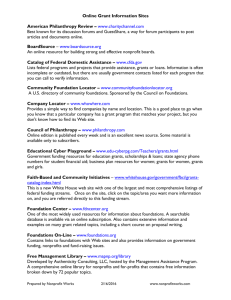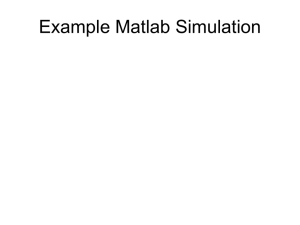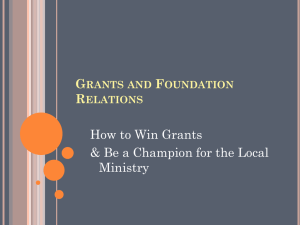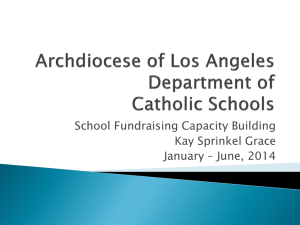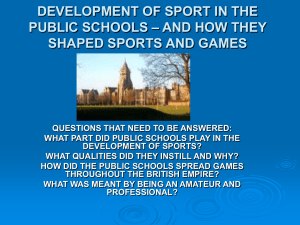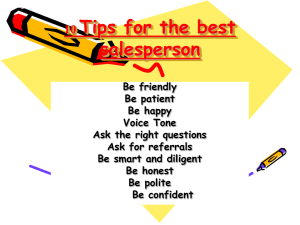2.03A Solicit Grant/Foundation Money
advertisement
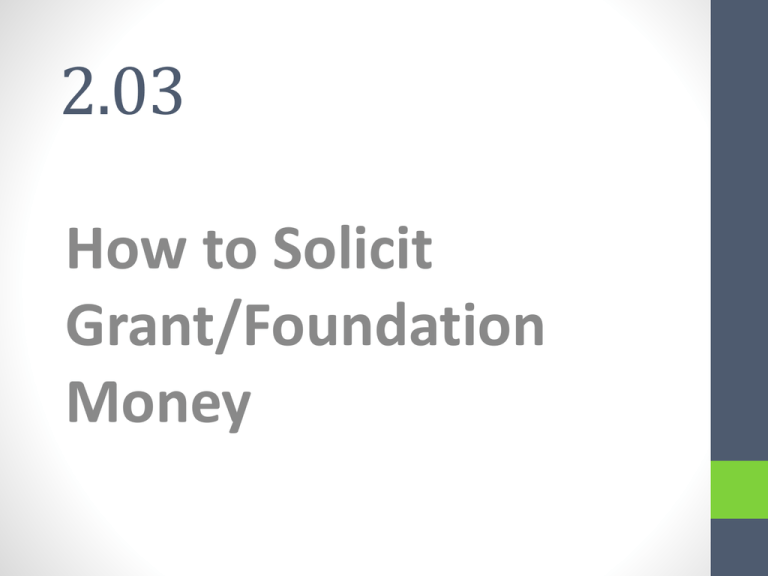
2.03 How to Solicit Grant/Foundation Money Grants and Foundations • Grant - non-repayable funds disbursed by one party; often a government department, corporation, foundation or trust, to a recipient, educational institution, business or an individual. • Foundation - a legal categorization of nonprofit organizations that will typically either donate funds and support to other organizations, or provide the source of funding for its own charitable purposes. People who Benefit from Grants/Foundations • Undergraduate and Graduate Students • Non-Profit Organizations • Small Businesses • Schools Considerations for Grant Money • Most grants are made to fund a specific project and require some level of compliance and reporting. • Other grants can be given to individuals, such as victims of natural disasters or individuals who seek to open a small business. Grant Writing • The grant writing process involves an applicant submitting a proposal to a potential funder, either on the applicant's own initiative or in response to a Request for Proposal from the funder. • Most grant applications involve the following: • • • • • • • Cover Letter Executive Summary Problem Statements/Need Description Budget Qualifications Conclusion Supporting Material Considerations for Foundation Money • Businesses, Groups, or Local Teams are considered for a donation from a foundation if they ask for a donation. • You must go to a foundation to ask for a money, the foundation will not come to you and ask to give you money. Research Tools to Locate Funders • http://www.dummies.com/how-to/content/theessentials-of-finding-and-applying-for-agrant.html • Foundations are usually local and are found by searching for non-profits in the area. • Grants most often come from a wide range of government departments or an even wider range of public and private trusts and foundations. Advantages Gained by Local vs. National Businesses • Local Business • You can get more of a personal meeting with the committee • More than likely an individual in the community has won the particular grant • National Business • More opportunities for money at the national level • Usually with easily recognizable company Following Up with Prospect/Sponsor Importance of Following Up • Most prospects don’t say “Yes” the first time by. • Prospects want to know that you care about the business they are willing to offer you. • Sometimes the prospect just needs a little reminder that you are still interested. How do you follow up? 1. Keep all the business cards you have collected and any leads in a safe place. • You may have to follow up more than once with prospective clients. 2. Make an effort to remember new faces and names when meeting business prospects. 3. Make your initial follow up with business prospects within 24 to 48 hours of your first contact with the prospects. • You can use a quick call, letter or a brief email to do so. Continued… 4. Leave an optimistic, professional and friendly message if you call a business prospect and the answering machine picks up. 5. Continue to follow up, according to your sales policy. • Some companies use a standard follow-up process, making contact at 24 hours, 72 hours and 2 weeks 6. Update your database any time you try to contact or do contact prospective clients. • This can help you tailor your proposal each time you talk Ways to Follow Up w/ Potential Prospects • Fax • Phone call • Ex: This is Such And Such from My Organization. I just wanted to follow up on the sponsorship request I sent. Do you have a few seconds? • Letter • Face-to-face • Email An event organizer is most likely to receive grant or foundation funding if the event • Benefits the community. Some event organizers ask the government or an independent organization for money, or a grant, to support certain event activities. To receive a grant, the requestor usually goes through an extensive application and interview process. Many applicants do not receive grant or foundation money because of the limited availability of money, which makes the process very competitive. Event organizers are more likely to receive grant or foundation funding if the event benefits the community. For example, an event to raise awareness about homelessness is more likely to receive grant money than a personal event, such as a family reunion or a wedding. Although criteria to qualify for grant or foundation funding varies by government agency or foundation organization, the amount of media coverage, the appearance of celebrities, and size of a target market are not usually the most important considerations. To obtain operating funds, a not-for-profit sport camp for underprivileged children might seek • Grant or foundation monies. Many nonprofit groups rely on government support or contributions so they can operate. An organization that serves the community by running a sport camp for underprivileged children may qualify for grant or foundation monies. To obtain grant or foundation moneys, the not-for-profit organization usually goes through an extensive application and interview process, so the requestor should be familiar with and meet the necessary criteria for funding. Capital-improvement loans could be costly to the organization. The government, rather than the community, gives tax refunds to those who qualify. Celebrity endorsements do not provide operating funds. What do amateur sport organizations often solicit in order to be able to operate? • Grant money. Many amateur sport organizations are nonprofit groups that rely on government support or contributions so they are able to operate. These organizations often solicit grant money from foundations or other groups that give money to worthy causes. For example, youth athletic programs often solicit grant money from local foundations to purchase equipment and uniforms. Amateur sport organizations do not solicit media coverage or free publicity in order to be able to operate. Organizations solicit playing locations, such as school gymnasiums, rather than playing time. The End •Any Questions????????
